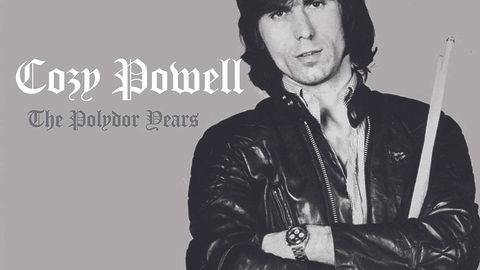The late Colin Trevor ‘Cozy’ Powell will always have a special place in this hack’s heart, the drummer being the subject of my first ever professional – and I use the word advisedly – music-journal interview way back in mid-1975. At that time, Powell had just formed a band called Hammer. He was also riding high on the back of hit singles Dance With The Devil, The Man In Black and softwareuiphraseguid=“bb4855d9-c82e-4085-84db-18e8dc24bb3a”>Na Na Na.
After a storied shift with Ritchie Blackmore’s Rainbow, the tub-thumper – and let’s face it, Cozy was the very definition of the term – recorded the solo albums Over The Top (1979), Tilt (1981) and Octopuss (1983).
Collected under the banner The Polydor Years, these are curious curios indeed. With Over The Top (4⁄10), Powell was obviously keen to prove there was more to his playing style than the ‘pow!’ in Powell. It begins with Theme One, the George Martin composition popularised by Van der Graaf Generator, here done in a Doctor Who style, and of prog, classical and jazz influences abound.
Tilt (7⁄10) is a far superior, more straightforward offering. Guest guitarist Jeff Beck sizzles on Cat Moves and Hot Rock, while Frank Aiello and the estimable Elmer Gantry alleviate the instrumental tedium with some welcome vocals.
Octopuss (5⁄10) finds Powell reverting to type with overblown versions of 633 Squadron and The Big Country, but it’s all too Jeff Wayne for comfort. The title track, however, prowls and pounds like a jackhammer-wielding panther.


